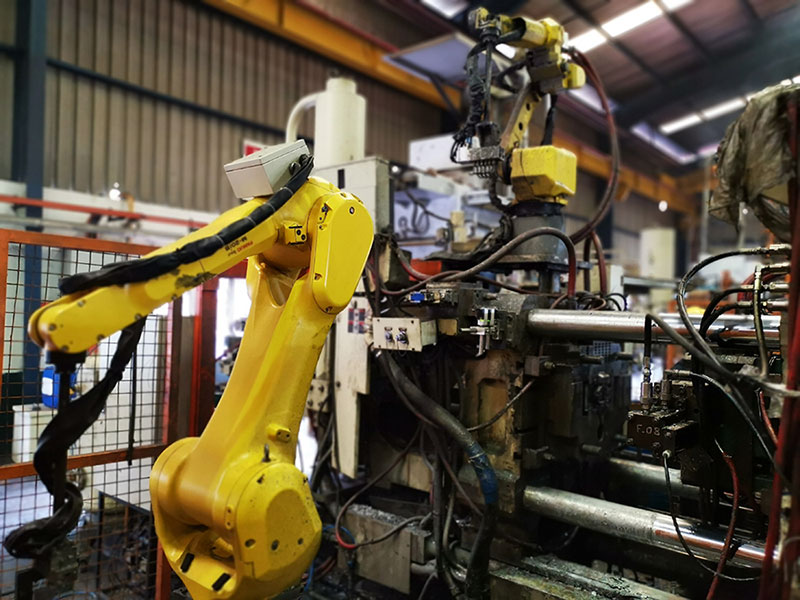The Growth and Impact of Die Casting in Malaysia

Diecasting is a vital process within Malaysia's manufacturing industry which is a major contributor to the creation of premium metal components that are used in a range of industries. This manufacturing process involves injecting hot metal, most commonly zinc or aluminum, into a mold using the pressure of a high, which allows the development of precise and complex shapes. With a growing demand for durable, lightweight metal parts, diecasting has been gaining importance in various industries like electronics, automotive, and consumer goods. Diecasting in Malaysia's flourishing market is driven by advancements in technology, skilled labor, and the country's strategic position in Southeast Asia, making it a key player in the supply chain in the world.

Diecasting's rapid growth in Malaysia has been supported through a number of reasons, not least the government's commitment to boosting manufacturing through policies and incentives. The Malaysian Industry4WRD policy, which is focused on the implementation of cutting-edge technology in manufacturing, has driven the industry of diecasting forward through encouraging the use of automation such as robotics, robots and digital strategies. The advances have increased effectiveness, decreased production costs, and increased precision in manufacturing processes. In the end, Malaysian diecasting companies are now better positioned in the global market, producing high-quality parts that meet international standards and catering to industries both local and overseas.
In Malaysia the automobile industry is one of the major users of diecast parts. Diecasting is extensively used for the production of lightweight, robust components such as engine blocks, transmission housings as well as structural parts. With the development of automotive technology toward electric vehicles (EVs) and more energy-efficient models, the necessity for lightweight metal parts is growing more critical. Diecast aluminum, in particular has been gaining attention because of its superior strength-to-weight ratio and ability to withstand the extreme heat. Malaysian catastrophes are taking advantage of this trend, by developing new solutions that meet the changing requirements of the auto industry and positioning Malaysia as an important actor in the distribution chain of parts for cars.
In addition to the automotive manufacturing sector, Malaysia's diecasting industry is a key component of the electronic industry. Precision and dependability that are necessary in electronic equipment makes diecasting an excellent method for producing intricate metal parts. Diecast components are used extensively in consumer electronics, such as smartphones, laptops, and home appliances, and also in industrial machinery. A growing demand for electronic devices around the globe has led to increased manufacturing in the Malaysian diecasting industry and manufacturers are constantly developing new methods that can meet requirements of the electronics market. The integration of computer-aided design and high pressure diecasting can enable companies to design sophisticated, high-quality components which enhance quality and performance of electronic devices. To generate more information kindly check out Senadiecasting

Although it is a great option, the industry of diecasting in Malaysia faces several obstacles. One of the biggest issues is the rising cost of the raw materials, specifically aluminum and zinc, which are used extensively during the process of diecasting. Variations in global prices for metals will have a profound effect on the financial viability of operations that use diecasting. Furthermore, diecasting companies must address environmental concerns related to energy consumption and waste production. Many diecasting companies in Malaysia are adopting more sustainable practices like recycling metals and implementing energy-efficient techniques, in order to minimize the environmental impact of their operations. These initiatives are vital as the industry strives to find a balance between expansion and environmental sustainability in an ever-greener the world.
Diecasting is the foundation of the manufacturing sector in Malaysia which is responsible for the creation of vital components used in various sectors, including automotive and electronic. Its strategically located along with technological advancements and a skilled workforce have allowed Malaysia's diecasting sector to grow and thrive on a global scale. However, challenges such as fluctuating raw material costs and environmental concerns will need to be dealt with to ensure the industry's growth and sustainability. As long as the industry continues to invest in innovations and sustainable practices Diecasting in Malaysia is poised for further expansion, solidifying its role as an important player in the world's manufacturing scene.
